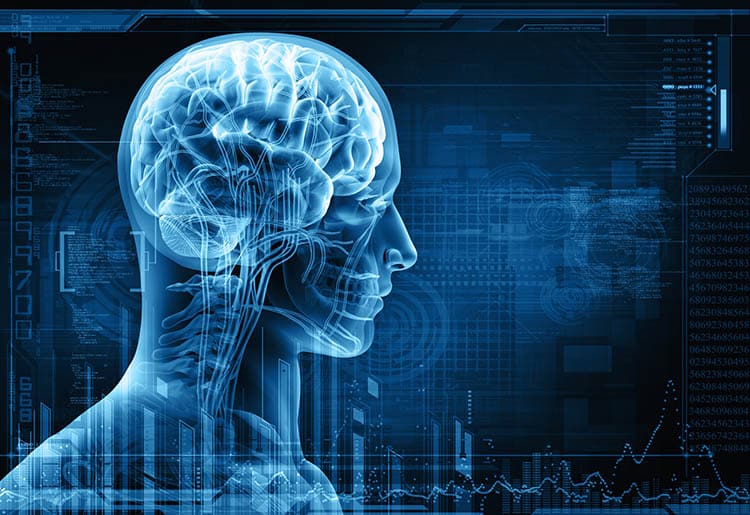- Is Chronic Pain Hereditary?
Last updated 18/03/2022 by The pain clinics - Interdisciplinary Health
- Is Chronic Pain Hereditary?
A new study in the research journal Journal of the International Association of the Study of Pain has shown interesting results around this issue. The study showed that there are primarily 5 factors that make both hereditary genetics and variable epigenetics play a greater role in whether people inherit pain from their parents.
Chronic pain is discomfort, ailments and aches that do not go over and persist. Often, chronic pain is linked to the consept of rheumatism, Fibromyalgia, Autoimmune diseases, but often it can also be extensive myalgias and underlying joint dysfunction - often due to overweight, low activity and energy.
- The study showed that 5 factors determined whether the child inherited pain
The study showed that it was primarily these factors that recorded:
- Genetics: The study estimates that half of the cases where people inherit chronic pain are genetically determined - ie that it is passed on from the parents' DNA to the child.
- Foster Development: Having a mother with chronic pain can already begin to shape the child's neurobiological development within the stomach. This is due to higher stress levels and choices that the mother makes before and after birth.
- Social pain learning: Children learn from an early age that pain is something that characterizes everyday life, and will also respond to pain behaviors such as exaggeration, catastrophizing, turmoil and complaining.
- child rearing: Lack of care, affection and generally poor presence for the child can lead to the child having a higher chance of developing chronic pain.
- Stressful upbringing: Growing up in a home with someone suffering from chronic pain can be very stressful. This may also be related to the fact that the person suffering from chronic pain has poor financial advice and is unable to take care of himself properly.
- Chronic pain is hereditary, but only to a certain extent
The study further showed that part of chronic pain is hereditary, but that other factors - epigenetics - play a major role in the degree to which the child 'inherits' the chronic pain from his parents. If you have a crisis-maximizing parent with chronic pain who also does not give the child enough attention and care - then the child is in a high-risk group for getting chronic pain.
Exciting research! Here, therefore, a high focus should be on prevention and that parents with chronic pain aim to reduce these risk factors around their child - this can help to reduce the risk of the child getting the same chronic pain. Of course, it can be very demanding when you are suffering from chronic pain, but in light of this information, you should consciously go in to do this - for the benefit of the child. If you want to read more about the study then you can do it here - or you can see at the bottom of the article for full accreditation.
Feel free to share this article with colleagues, friends and acquaintances. If you want articles, exercises or the like sent as a document with repetitions and the like, we ask you like and get in touch via get Facebook page here . If you have any questions, just comment directly in the article or to contact us (totally free) - we will do our best to help you.
POPULAR ARTICLE: - New Alzheimer's treatment restores full memory function!
Also read: - 4 Clothes Exercises against Stiff Back
Also read: - 6 Effective Strength Exercises for Sore Knee
Did you know: - Cold treatment can give pain relief to sore joints and muscles? Blue. Biofreeze (you can order it here), which consists mainly of natural products, is a popular product. Contact us today via our Facebook page if you have questions or need recommendations.

Also read: - 6 Early Signs of ALS (Amyotrophic Lateral Sclerosis)
- Do you want more information or have questions? Ask our qualified health care provider directly (free of charge) via ours Facebook Page or via our «ASK - GET ANSWER!"-column.
VONDT.net - Please invite your friends to like our site:
We are one free service where Ola and Kari Nordmann can answer their questions about musculoskeletal health problems - completely anonymously if they want to.
Please support our work by following us and sharing our articles on social media:
 - Please follow Vondt.net on YOUTUBE
- Please follow Vondt.net on YOUTUBE
(Follow and comment if you want us to make a video with specific exercises or elaborations for exactly YOUR issues)
 - Please follow Vondt.net on FACEBOOK
- Please follow Vondt.net on FACEBOOK
(We attempt to respond to all messages and questions within 24 hours. You choose whether you want answers from a chiropractor, animal chiropractor, physiotherapist, physical therapist with continuing education in therapy, physician or nurse. We can also help you tell you which exercises that fits your problem, help you find recommended therapists, interpret MRI answers and similar issues. Contact us today for a friendly call)
Photos: Wikimedia Commons 2.0, Creative Commons, Freestockphotos and submitted reader contributions.
References:
Stone, Amanda L .; Wilson, Anna C. Transmission of risk from parents with chronic pain to offspring: an integrative conceptual model. Pain: Post Author Corrections: May 31, 2016 doi: 10.1097 / j.pain.0000000000000637













Leave a reply
Want to join the discussion?Feel free to Contribute!